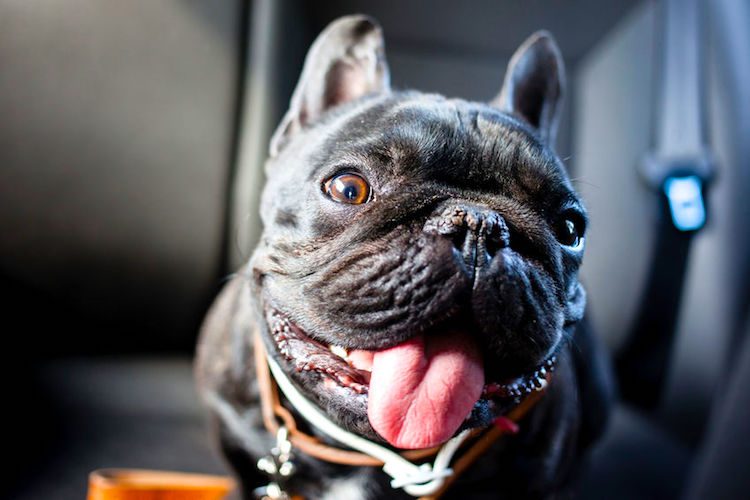When it comes to French Bulldogs, there is a common misconception that they have lockjaw. However, this intriguing notion is far from the truth. French Bulldogs, like any other dog breed, do not possess the physical ability for lockjaw. This fascinating claim has often led to questions and discussions among dog enthusiasts, prompting a closer look at the unique characteristics of French Bulldogs.
French Bulldogs are known for their distinctive appearance and friendly nature. Originating from England, they were initially bred for ratting and companion purposes. Despite their small size and adorable facial features, French Bulldogs are not prone to lockjaw, which is a condition more commonly associated with larger dog breeds. Understanding the truth behind this misconception is essential in dispelling any myths and ensuring the proper care and understanding of French Bulldogs.
A common misconception is that French Bulldogs have lockjaw. This is not true. Lockjaw, also known as tetanus, is a condition that affects the muscles and is caused by bacterial infection. French Bulldogs do not have any special tendency toward developing lockjaw. However, it is always important to provide proper care and regular veterinary check-ups to ensure the overall health and well-being of your French Bulldog.

The Truth About French Bulldogs and Lockjaw
French Bulldogs are a popular breed known for their unique appearance and lovable personalities. However, there are some misconceptions surrounding their health, including the idea that they have the condition known as lockjaw. In this article, we will debunk this myth and provide you with accurate information about French Bulldogs and lockjaw.
Lockjaw, also known as tetanus, is a condition that affects the muscles and can cause stiffness and spasms. It is not specific to any particular dog breed, including French Bulldogs. The term “lockjaw” often refers to a dog’s inability to open their mouth due to muscle stiffness, but this is not a common issue in French Bulldogs.
French Bulldogs are a brachycephalic breed, which means they have a shortened muzzle and a flattened face. This unique anatomy can sometimes lead to respiratory issues, such as difficulty breathing or panting. However, it does not affect their ability to open their mouth or cause lockjaw.
Understanding the Brachycephalic Anatomy
To better understand why French Bulldogs do not have lockjaw, let’s take a closer look at their brachycephalic anatomy. Their shortened muzzle and flattened face result in a compressed airway, making it more challenging for them to breathe efficiently. This can lead to snorting, snoring, and occasional panting. However, these breathing difficulties do not impact their ability to open their mouth.
Lockjaw, or the inability to open the mouth, is a result of muscle stiffness and spasms, typically caused by tetanus infection or other medical conditions. It is not an issue commonly associated with French Bulldogs or any other dog breed for that matter.
The brachycephalic anatomy of French Bulldogs may require extra care and attention to ensure their respiratory health, but it does not make them prone to lockjaw. It’s important to distinguish between the unique characteristics of a breed and the occurrence of certain medical conditions.
Caring for Your French Bulldog’s Health
Although French Bulldogs do not have lockjaw, they still require proper care and attention to maintain their overall health and well-being. Here are some essential tips to keep in mind:
- Regular veterinary check-ups: Take your French Bulldog to the vet for routine check-ups to ensure they are in good health and to catch any potential issues early on.
- Maintain a healthy diet: Feed your dog a balanced and nutritious diet to support their overall health. Consult with your vet for specific dietary recommendations.
- Provide regular exercise: French Bulldogs benefit from daily exercise to keep them physically and mentally stimulated. However, be cautious of extreme temperatures or excessive physical exertion due to their brachycephalic anatomy.
- Promote good dental hygiene: French Bulldogs are prone to dental issues, so regular teeth brushing and dental cleanings are essential for their oral health.
- Keep them cool: Due to their brachycephalic anatomy, French Bulldogs are more prone to overheating. Ensure they have access to shade and fresh water, especially during hot weather.
By following these guidelines, you can help ensure your French Bulldog stays healthy and happy without worrying about lockjaw or other misconceptions associated with the breed.
The Verdict: French Bulldogs Do Not Have Lockjaw
In conclusion, French Bulldogs do not have lockjaw. The term “lockjaw” is often incorrectly associated with their breed, but it is not a condition they are prone to. Their unique brachycephalic anatomy may require some extra care and attention to maintain their respiratory health, but it does not affect their ability to open their mouth or cause lockjaw. By understanding the true facts about French Bulldogs and debunking myths, we can provide accurate information about their health and well-being.
Key Takeaways: Do French Bulldogs Have Lockjaw?
- Lockjaw is not a specific condition that French Bulldogs are prone to.
- French Bulldogs can experience jaw problems, but they are not exclusive to the breed.
- Proper dental care and regular vet check-ups can help prevent jaw issues in French Bulldogs.
- If your French Bulldog shows signs of jaw problems, such as difficulty eating or opening their mouth, consult a veterinarian for a diagnosis and treatment plan.
- While lockjaw is not a concern for French Bulldogs, it is important to prioritize their overall health and well-being.
Frequently Asked Questions
Here are some common questions about French Bulldogs and lockjaw.
1. Are French Bulldogs prone to lockjaw?
No, French Bulldogs are not prone to lockjaw. Lockjaw, also known as tetanus, is a condition that affects the muscles and causes stiffness and spasms. While lockjaw can occur in any breed of dog, including French Bulldogs, it is not specific to this breed and is relatively rare. It is important to note that French Bulldogs can still experience other health issues, so regular veterinary check-ups are essential to ensure their overall well-being.
2. What are the common causes of lockjaw in dogs?
The common causes of lockjaw in dogs are bacterial infections, particularly those caused by the bacteria Clostridium tetani. These bacteria typically enter the body through wounds or puncture injuries and release toxins that affect the nervous system, leading to muscle stiffness and spasms. It is important to make sure your dog’s vaccinations and boosters are up to date to prevent infections that can potentially cause lockjaw. Regular cleaning and care of any wounds or injuries are also essential to reduce the risk of bacterial infections.
3. How can I prevent lockjaw in my French Bulldog?
To prevent lockjaw in your French Bulldog, it is important to maintain good hygiene and regularly clean and care for any wounds or injuries. Keep your dog’s vaccinations and boosters up to date to protect them from bacterial infections that can potentially lead to lockjaw. It is also essential to provide a safe environment for your dog, free from objects or substances that could cause injuries. Regular veterinary check-ups and prompt treatment of any health issues are crucial in preventing and managing potential complications.
4. Can lockjaw be treated in dogs?
Yes, lockjaw in dogs can be treated, but it requires prompt and appropriate medical intervention. Treatment often includes administering medications to control muscle spasms and providing supportive care to manage any complications. In severe cases, hospitalization may be necessary to ensure proper monitoring and care. It is crucial to consult a veterinarian if you suspect your dog may have lockjaw or any other health issue to receive an accurate diagnosis and the necessary treatment.
5. What are the signs and symptoms of lockjaw in dogs?
The signs and symptoms of lockjaw in dogs may include muscle stiffness, difficulty opening the mouth, jaw spasms, difficulty eating or drinking, drooling, and overall discomfort. In advanced cases, dogs may also experience respiratory difficulties due to the muscle spasms affecting the chest muscles. If you notice any of these symptoms in your French Bulldog or any other dog, it is important to seek veterinary care immediately for proper diagnosis and treatment.

FRENCH BULLDOG HAS LOCKJAW
In summary, French Bulldogs do not have lockjaw. Lockjaw, also known as tetanus, is a condition that affects the jaw muscles and is caused by a bacterial infection. French Bulldogs are not prone to this condition.
Although French Bulldogs have a unique facial structure that can sometimes make it appear as though they have a lockjaw, it is simply a characteristic of their breed. They have a relatively short snout and a slightly underbite, but this does not affect their ability to open and close their jaws normally.
